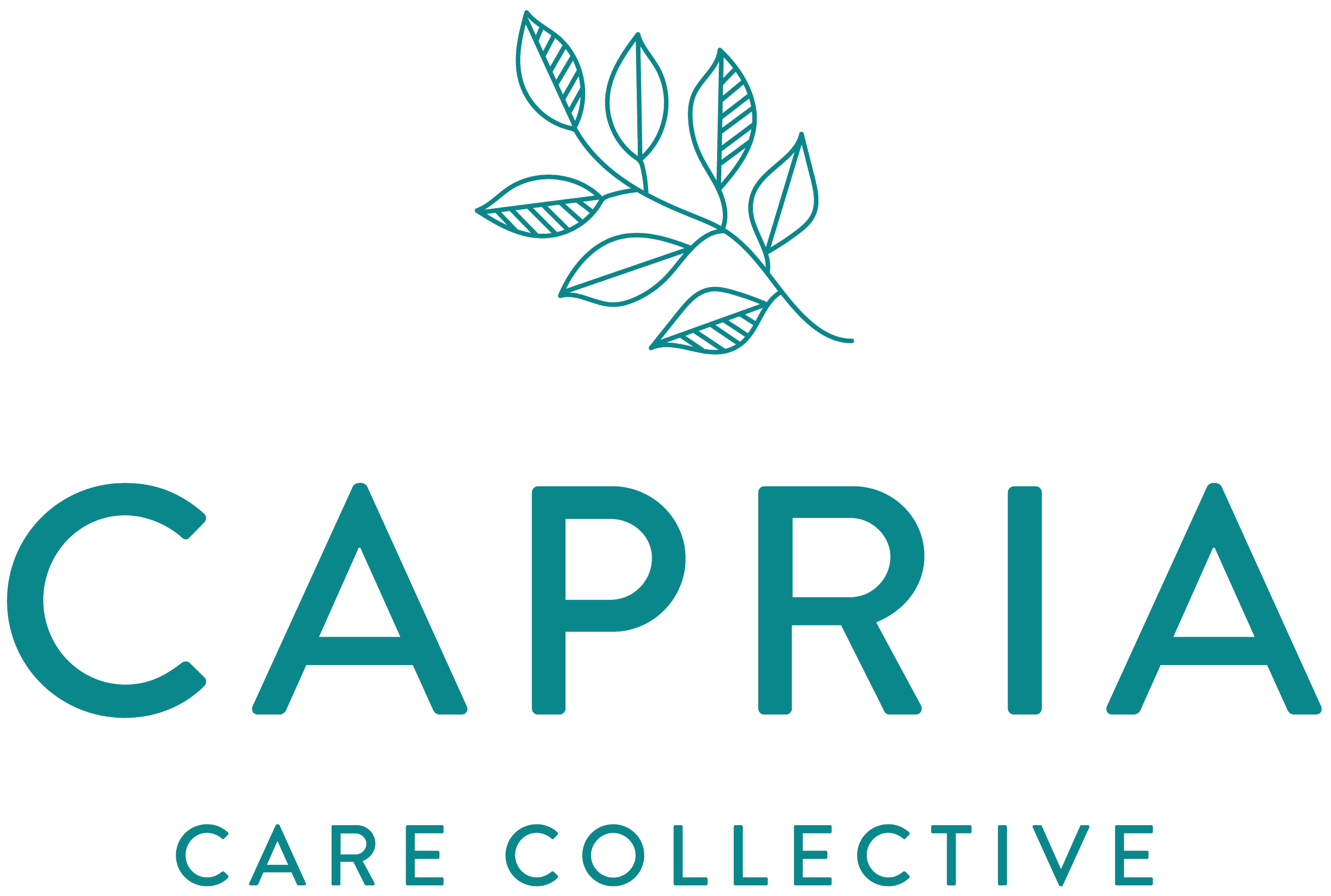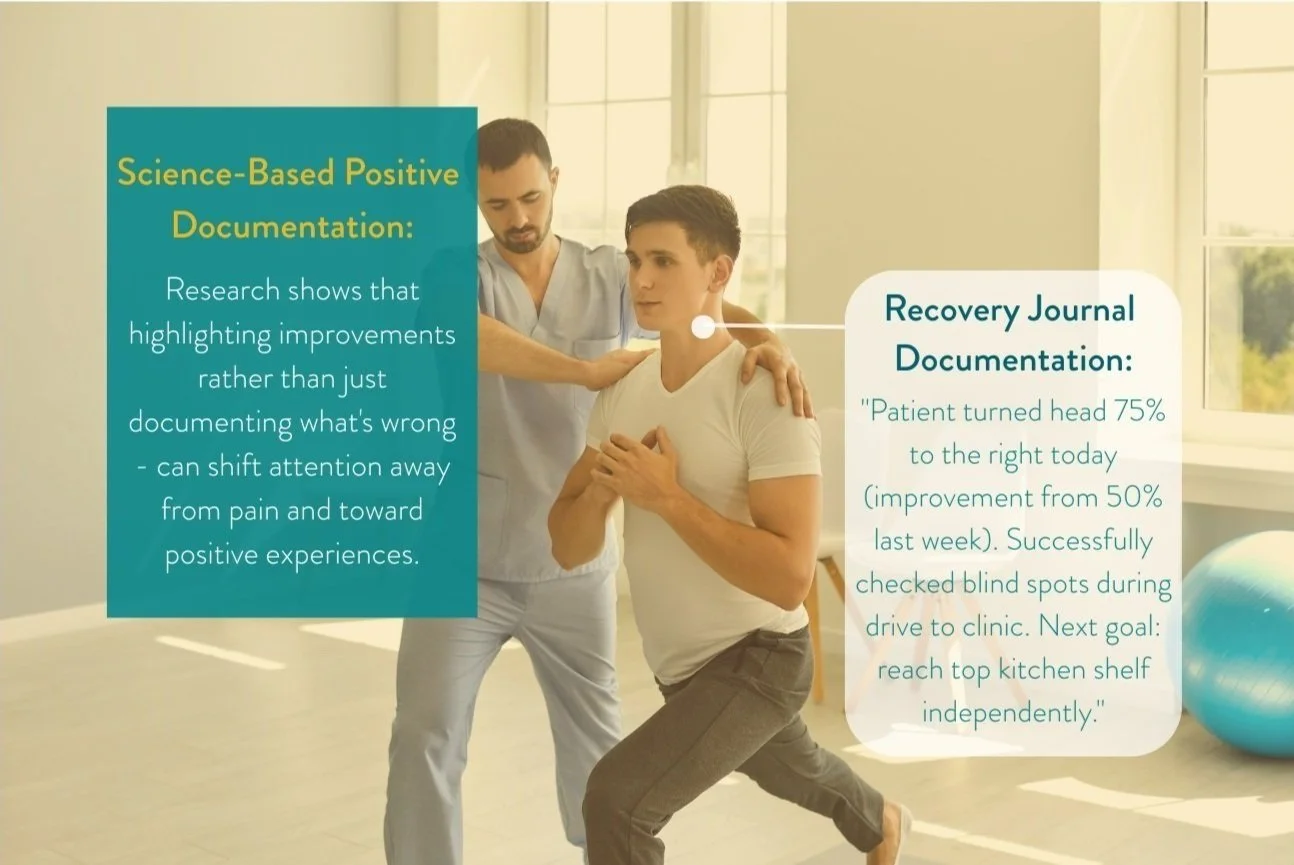The Recovery Journal Method: A Positive Approach to ICBC Documentation That Actually Works
Here's something most practitioners don't realize: the way you frame your documentation affects both your approval rates AND your patient's recovery outcomes. And rigorous pain science research backs this up.
Most treatment notes read like a catalog of everything that's still broken:
"Patient still reports 6/10 pain"
"Continues to have difficulty with..."
"Unable to perform..."
"Still experiencing limitations..."
This negative focus creates two problems: ICBC can't see clear progress, and your patients start believing they're not getting better. But here's what systematic research tells us about why this matters.
What Systematic Reviews Say About Positive Focus
A 2022 systematic review and meta-analysis of 16 randomized controlled trials found that positive psychology interventions showed beneficial effects on pain intensity and emotional functioning, including less depressive symptoms, pain catastrophizing, and negative affect, while increasing positive affect Are Positive Psychology Interventions Efficacious in Chronic Pain Treatment? A Systematic Review and Meta-Analysis of Randomized Controlled Trials - PubMed.
The Recovery Journal Method: Science-Based Positive Documentation
Instead of documenting what's wrong, document what's improving. Research shows that positive psychology interventions "enable the experience of positive emotions through specific behavior and changing cognitions and may lead the focus of attention away from pain towards positive stimuli which can alter the perceived unpleasantness and intensity of pain".
Traditional Documentation: "Patient continues to experience neck pain and stiffness. Still unable to check blind spots while driving. Ongoing difficulty with overhead reaching."
Recovery Journal Documentation: "Patient turned head 75% to the right today (improvement from 50% last week). Successfully checked blind spots during drive to clinic. Next goal: reach top kitchen shelf independently."
Why This Works Better for Both ICBC and Patients
Pain Neuroscience Education research shows that when patients understand their condition and see progress, it empowers them to manage more effectively and fosters a sense of control, which is crucial for long-term recovery Assessing Pain Research: A Narrative Review of Emerging Pain Methods, Their Technosocial Implications, and Opportunities for Multidisciplinary Approaches - PMC.
The Recovery Journal method:
Shows ICBC clear functional progress over time
Builds positive emotions that research shows can reduce pain catastrophizing A Qualitative Exploration of Resilience among Patients Living with Chronic Pain - PMC
Demonstrates forward momentum toward goals
Helps patients focus on abilities rather than limitations
Real Recovery Journal Examples
Week 1: "Patient's victory: shampooed hair independently for first time since accident. Building toward goal of complete morning routine."
Week 3: "Progress milestone: drove to grocery store alone (first time in 6 weeks). Completed 30-minute shopping trip. Working toward full weekly shopping independence."
Week 5: "Major achievement: returned to work for 4-hour shift. Sat at computer for 45-minute periods. Progressing toward full-time work capacity."
The Science of Handling Setbacks
Research on resilience shows that psychologically resilient individuals rebound from daily pain catastrophizing through experiences of positive emotion Beyond Negative Pain-Related Psychological Factors: Resilience Is Related to Lower Pain Affect in Healthy Adults - ScienceDirect. The Recovery Journal handles setbacks by focusing on maintained abilities rather than temporary difficulties.
When something isn't improving: acknowledge it briefly, don't elaborate, set it as a future goal, then focus on what IS working.
"Don't dwell on it, don't fixate on it, just make it a goal for next time."
The Evidence Base
Another systematic review examining positive psychology interventions for chronic pain patients found that these approaches "suggest the utility of PPIs in mitigating the psychological consequences of chronic pain" Positive psychology interventions can improve mental health for chronic pain patients: a systematic review and meta-analysis: Psychology & Health: Vol 0, No 0.
The Bottom Line
The Recovery Journal Method isn't just about better approvals (though it delivers those). Systematic research shows that focusing on positive functioning helps people sustain engagement in meaningful activities and recover from stressful experiences, leading to better adaptation to chronic pain Resilience Theory: A Summary of the Research (+PDF).
Your patients develop greater resilience. ICBC sees clear justification for continued treatment. You get more approvals. And everyone benefits from an approach that's backed by rigorous scientific evidence.
Ready to transform your ICBC documentation approach? Understand the complete Enhanced Care Model before implementing the Recovery Journal system. Get our comprehensive guide for just $1 and discover how positive documentation leads to better outcomes and higher approval rates.



